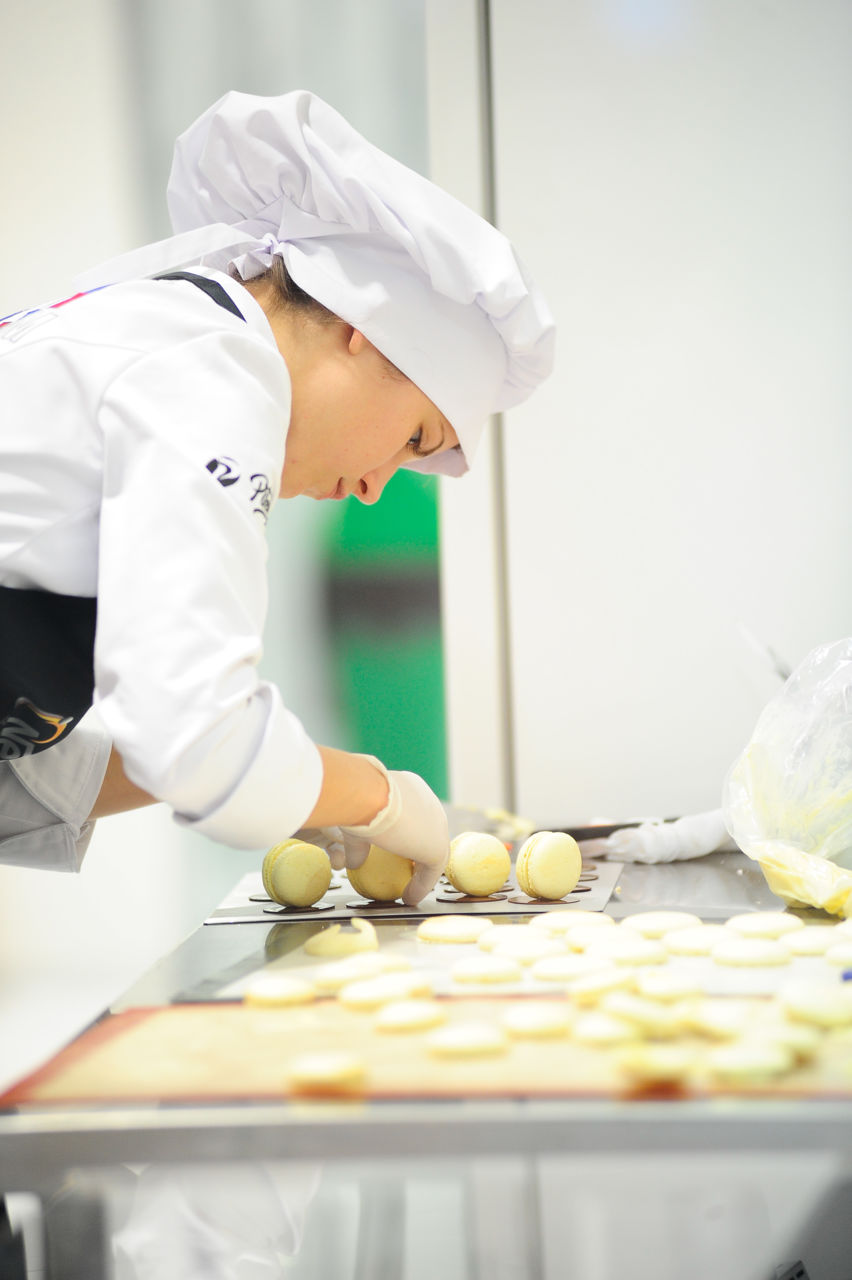13 July 2020
Champion shares her story of resiliency at the United Nations
In the increasingly noisy conversation about what the world should look like after COVID, it might be easy to drown out the voice of youth.
That’s why the contribution of WorldSkills Champion Anna Prokopenya was so important at a major United Nations Forum this month.
Anna competed for Russia in Patisserie and Confectionary at WorldSkills Saō Paulo 2015.
Her journey since then has taken her to France where she is working as a pastry chef and continuing her education in food science.
All that changed almost overnight. As she puts it, in what must be an understatement, “The global pandemic and quarantine lead to the unavoidable drop in quality of my education.”
Anna was addressing a session organized by UNESCO on education post-COVID-19 at the United Nations High-Level Political Forum on Sustainable Development.
For her, she told the audience, the crisis has raised a fundamental question. “Why get an education?”
Around the world, tens of millions of young people have seen their education halted or seriously disrupted, and a dark cloud thrown over their future.
No longer able to attend classes or received fact to face instruction, Anna says young people like her have learnt an important lesson.
“In the situation of lowered study control and direction from instructors we needed to find something else to motivate us. Lack of external motivation let us realize the need for internal motivation.”
The pandemic means, she says, that “the role of education can be to lead students to be motivated from inside. To want to learn because they want to develop their interests, passions, and dreams not because someone else says they should learn.”

Being a WorldSkills Champion, Anna says, has helped. “I experienced that this inner motivation brings success.”
Self-learning and constant growth are developed by being self-motivated, she explained at the Forum, while prosing ways in which this could become a more prominent part of education systems.
Colleges and schools should move to a more personalized approach to students “taking into account each talent, personal story, and circumstances. This is not only role of school, but also individual responsibility – discover what makes every of us special and develop it.”
She also called for a greater focus and diversity and inclusivity, changes that could improve the level of quality of life across all society.
Role models like Champions and those famous for their skills, also have an important role to play.
“They lead the way innovative ideas and inspire students to become an active player in their career path.” Seeing them online give them a direct connection with young people “who we would never approach in real life.”
Finally, Anna said, there should be an end to focusing on the challenges of online education posed by coronavirus “and start harvesting advantages it brings.”
It was time, she told her audience, to examine how this might best be done, including ensuring that practical learning, a “crucial part of technical education, is included in the new process.”
How, she asked, “can the system become more flexible to consider and cultivate each student’s personality?”
Education, she said needs to show the way forward for self-motivated students, helping them process and make sense of the huge amount of information available in this digital world.
If this can be done, Anna concluded “I believe that this will help to build the resiliency among young people.”
Join Anna and other representatives of the Champions Trust for further discussions on the need for resiliency on World Youth Skills Day, 15 July at the WorldSkills Conference Talk.
Also, make plans to join Shae White, WorldSkills Champion at the UN’s World Youth Skills Day online event as education, industry, and youth leaders address the state of education.